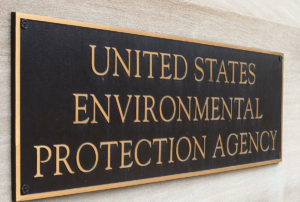 Ethanol organizations submitting feedback to the the Environmental Protection Agency’s (EPA) request for comment on the current scientific understanding of greenhouse gas (GHG) are asking for an update.
Ethanol organizations submitting feedback to the the Environmental Protection Agency’s (EPA) request for comment on the current scientific understanding of greenhouse gas (GHG) are asking for an update.
Both the Renewable Fuels Association and the American Coalition for Ethanol (ACE) recommend the agency adopt the Argonne National Laboratory GREET model, calling it the “gold standard” of lifecycle models.
“The Agency’s last analysis of the GHG emissions associated with corn ethanol was conducted in 2010, as part of the rulemaking process for the RFS after it was revised by the Energy Independence and Security Act of 2007,” said RFA President and CEO Geoff Cooper. “Over the ensuing 12 years, the RFA has consistently urged the EPA to update its analysis to reflect the efficiencies that have been gained in ethanol production and the advances that have been made in lifecycle analysis.”
RFA used this comment opportunity to provide a thorough rebuttal to a recent paper by the University of Wisconsin’s Tyler Lark and others in the Proceedings of the National Academy of Sciences, titled “Environmental Outcomes of the U.S. Renewable Fuel Standard.”
ACE CEO Brian Jennings and ACE Board Director Ron Alverson both contributed to the feedback on why EPA must update the methodology it uses to account for the lifecycle GHG emissions of ethanol and other biofuels to properly credit their GHG benefits to meet climate goals. “Unlike EPA’s badly outdated 2010 assessment, the assumptions and estimates used by Argonne scientists in GREET are under constant peer review and updates to the model occur annually,” the feedback stated. “Not only do more than 40,000 users around the world depend upon GREET to help determine the lifecycle GHG impacts of certain fuel technologies, but the model is the basis for the assessments used under the California Low Carbon Fuel Standard and Oregon Clean Fuels Program.”

